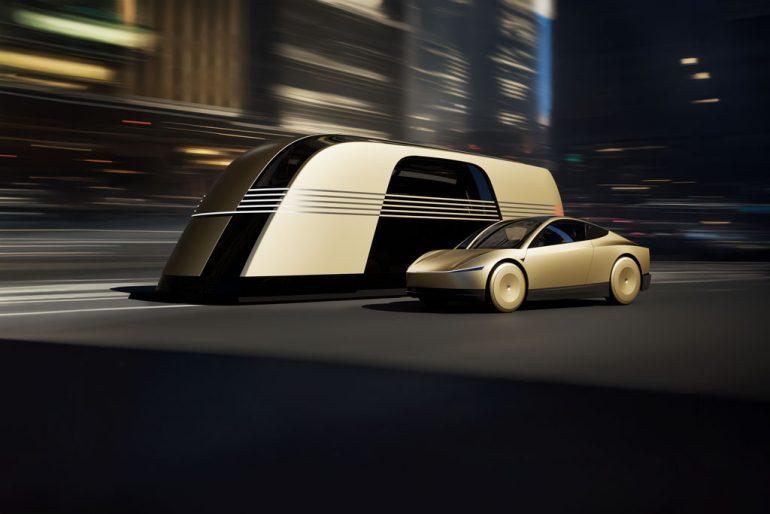
For years, an affordable Tesla has been the dream for millions of would-be EV owners. At one point, Elon Musk himself fueled expectations of a $25,000 model, known by fans as the potential “Model 2,” a next-gen EV that would slot in below the Model 3. But in an October 2023 earnings call, Musk made waves by saying that producing a $25,000 Tesla for human drivers would be “pointless” if it didn’t operate autonomously.
This statement marked a significant shift in Tesla’s trajectory. The “affordable Tesla” once considered crucial to the company’s growth is now being reconceived as the $25,000 fully autonomous “Cybercab,” a two-seat, driverless vehicle scheduled for production in 2026. Musk’s evolving vision prioritizes autonomous tech over the budget EV model many had anticipated. Let’s unpack how Tesla got here and what this means for the future of affordable electric vehicles.
Also, don’t forget that you can get discounted new car pricing with a free quote through qualified local dealer partners.
When Tesla teased plans for a more affordable EV, many envisioned a smaller, human-driven vehicle positioned below the Model 3, priced around $25,000. This “Model 2” was seen as Tesla’s gateway into mass-market affordability, possibly enabling the automaker to achieve ambitious production goals like 20 million units per year by 2030. However, the recent pivot to the fully autonomous “Cybercab” illustrates Tesla’s shift in priorities.
During Tesla’s Q3 earnings call, an investor asked when the world might see an affordable Tesla “non-robotaxi.” Musk quickly replied, “We’re not making a non-robo…,” before another executive interrupted him. Later in the call, Musk clarified that an affordable, human-driven Tesla would be “silly,” explaining that Tesla’s energy is focused on developing a fully autonomous future. The $25,000 “Cybercab” will reflect this, equipped with no steering wheel, pedals, or need for human control.
Tesla’s affordable EV was once expected to be a key part of its growth strategy. In early 2023, Musk still hinted that a lower-cost EV, equipped with revolutionary new manufacturing technology, was on track for 2025. But when Reuters reported in April that Tesla had scrapped these plans, Musk denied it—only to reveal six months later that the concept of a “budget Tesla” had indeed evolved.

According to industry experts, one reason for this pivot may be the rapid competition from other EV manufacturers, particularly in China. Chinese brands have become highly competitive in the EV sector, often outpacing Tesla in affordability. Seth Goldstein, an analyst with Morningstar, commented that Tesla may have recognized it was “late to making an affordable vehicle” and decided against investing heavily in a new, lower-cost platform.
Instead, it seems likely that any future Tesla “budget” model will be built on current platforms and priced around the mid-$30,000s. This approach will save costs by leveraging existing designs and manufacturing processes, allowing Tesla to remain competitive without the need for a ground-up platform overhaul.
Tesla’s latest concept, the “Cybercab,” is designed as a two-seat, two-door autonomous vehicle with a sleek, compact design. Unveiled at a theatrical event in Los Angeles in October, the Cybercab is a robotaxi envisioned to serve a wide range of applications without the need for human intervention. According to Musk, its design is optimized for autonomy, reinforcing Tesla’s focus on a future where human drivers are no longer necessary.
For Tesla fans and investors expecting a spacious, Uber-style robotaxi, the Cybercab’s design raised some eyebrows. Its two-seat configuration is an uncommon layout in the U.S. market, which typically favors larger vehicles with more passenger capacity. While the design is unique, some analysts worry that the Cybercab may limit Tesla’s appeal in the robotaxi sector by not offering more room for passengers or luggage.
Still, Musk is adamant that the $25,000 price tag will make the Cybercab a competitive option in the autonomous vehicle space. With Tesla’s Full Self-Driving software slated for updates in the coming years, Musk claims that fully autonomous versions of the Model 3, Model Y, and Cybercab could be on the road as soon as next year in California and Texas, pending regulatory approval.
Musk’s autonomous ambitions are ambitious, yet the technological, regulatory, and legal hurdles are formidable. Tesla’s “Full Self-Driving” feature is currently far from achieving full autonomy, as it still requires a driver’s active supervision. Regulatory bodies are closely scrutinizing autonomous vehicle development, and approval may take years longer than expected.
Moreover, while Musk’s confidence in the Cybercab is strong, its timing aligns with increased scrutiny and caution around autonomous vehicles. If Tesla fails to meet the stringent safety and reliability standards, the Cybercab may encounter delays, which could strain Tesla’s financial projections and impact shareholder confidence.
As Tesla pivots away from the traditional affordable EV model toward autonomous tech, the EV landscape is evolving rapidly. Tesla remains a pioneer, yet rivals like BYD, Nio, and Volkswagen are advancing in the sub-$30,000 EV market. The decision to abandon a $25,000 human-driven car may leave a gap for other brands to fill, especially in markets where consumers prefer traditional, affordable EVs without autonomous capabilities.
Tesla’s gamble is a bold one, and time will tell whether the Cybercab and other autonomous vehicles will deliver on the promises Musk has set forth. As the company races to develop fully autonomous systems, it also faces increasing pressure from investors, competitors, and the public to make autonomy affordable and accessible. For now, the dream of an affordable human-driven Tesla may be on hold indefinitely as Musk pursues a driverless future.